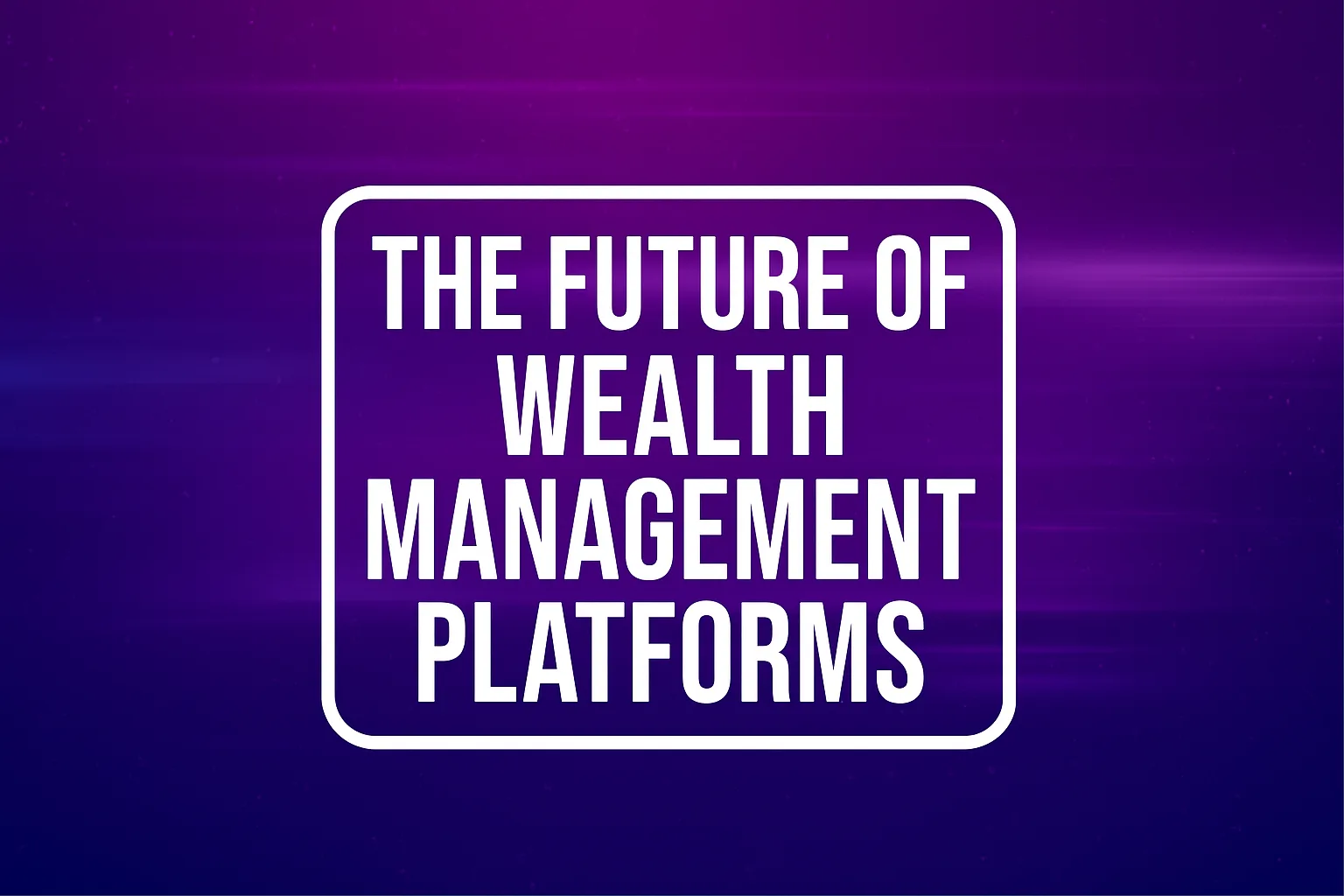The world of wealth management is no longer reserved for a privileged few. In 2025, digital platforms have transformed investing, financial planning, and wealth preservation into experiences that are accessible, transparent, and personalised for a much wider audience. Understanding the future of wealth management platforms is essential for investors, founders, and finance professionals alike.
Modern platforms are not simply about managing portfolios. They are about offering complete financial ecosystems that evolve with their users’ goals, risk profiles, and life events.
From Traditional Advisors to Digital-First Experiences

Historically, wealth management meant meeting a private banker, discussing goals behind closed doors, and committing to high fees and limited transparency. Today, digital platforms offer an alternative: self-serve options, hybrid advisory models, and instant insights powered by AI.
Companies like Nutmeg, Wealthfront, and Betterment have shown that users prefer intuitive interfaces, automated investing, and real-time portfolio updates over slow, paper-based processes. Even established banks and wealth managers now offer app-based experiences to keep pace with changing client expectations.
Personalisation is central. Whether through robo-advisors or human-hybrid models, platforms now offer portfolios tailored to individual goals. Retirement planning, homeownership, education funding, or even ESG investing.
Penguin Analytics found that 52% of robo-advisors now offer human-in-the-loop services. These hybrid models, which blend algorithmic precision with advisor expertise, deliver a 21% higher client retention rate within the first year. It is underscoring the trust and continuity enabled by combining AI and human guidance.
Democratising Access to New Asset Classes

Modern wealth platforms have also expanded what people can invest in. Beyond traditional stocks and bonds, users now access:
- Private Equity and Venture Capital: Platforms like Moonfare and Sweater Ventures offer fractional access to private funds.
- Real Estate Crowdfunding: Platforms such as Fundrise and RealtyMogul allow small investors to own slices of commercial and residential projects.
- Digital Assets: Some platforms offer crypto exposure, tokenised securities, and decentralised finance investment options.
- Thematic Portfolios: Users can invest in megatrends like AI, clean energy, or cybersecurity through curated baskets.
Fractional investing and low minimums mean that individuals with modest starting capital can now build diversified portfolios across multiple asset classes once reserved for institutional players.
Automation and Smart Personalisation

AI plays an increasingly important role in the future of wealth management. Automated portfolio rebalancing, tax-loss harvesting, and predictive financial planning are now standard features in leading platforms.
Smart assistants guide users through complex decisions. Such as adjusting risk exposure based on market shifts or recommending reallocation when approaching major life milestones. Wealthfront’s Self-Driving Money, for instance, automates the movement of excess cash into optimised portfolios without manual intervention.
The goal is to turn complex financial management into an invisible, intuitive process that adapts dynamically to each individual’s evolving needs.
Recent data reinforces the tangible benefits of personalization through analytics. According to Penguin Analytics, platforms leveraging real-time analytics for personalization report a 27% increase in average client assets under management (AUM) and an 18% boost in client satisfaction. These figures highlight the clear ROI of building adaptive, client-centric platforms where data continuously informs tailored experiences.
Increased Emphasis on Financial Wellness

Wealth management platforms are expanding beyond investing. Many now offer integrated budgeting tools, savings accounts, mortgage advisory, and retirement planning modules. The idea is to support holistic financial wellness, not just portfolio growth.
Services like Empower blend wealth management with cash flow tracking, debt management, and estate planning, helping users achieve broader life goals.
Financial education is also a key focus. Platforms provide resources, calculators, and gamified learning modules to empower users to make better financial decisions independently.
Regulation, Security, and Trust

As wealth management becomes digital, security and compliance are paramount. Leading platforms use advanced encryption, two-factor authentication, and regulatory licences to protect client assets and data.
Transparency around fees, performance reporting, and risk disclosures is becoming a regulatory expectation, not just a best practice. Platforms that embrace openness will be better positioned to earn and retain client trust.
Additionally, ethical AI use, bias mitigation in financial recommendations, and fair access to alternative investments are growing concerns for regulators.
The future of wealth management platforms is about simplicity, access, and empowerment. By lowering barriers, integrating smart automation, and expanding choice, modern platforms are helping a wider audience grow and protect their wealth intelligently.















